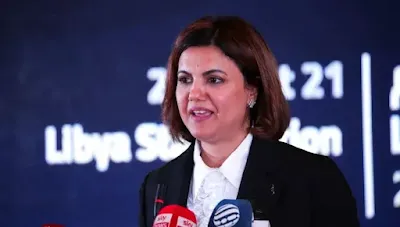
Libyan Foreign Minister Dismissed Amid Uproar over Meeting with Israeli Counterpar
t
Controversial encounter in Rome leads to government's decision to oust Foreign Minister Mangoush
Tripoli, Libya - The internationally recognized government of Libya made the decision to dismiss Foreign Minister Najla Mangoush on Sunday, following an uproar triggered by a meeting she held with her Israeli counterpart. The meeting, which took place in Rome last week, was announced by Israel's foreign ministry on Sunday night.
The Libyan foreign ministry swiftly rejected claims that the encounter had been officially sanctioned. In a statement, they clarified that the meeting was "informal," "unprepared," and "did not include negotiations or any official agreements." However, these explanations failed to assuage public outrage in Libya.
The exchange between the Libyan and Israeli foreign ministers marked a significant departure from the historically strained relations between the two countries. Libya, like many Arab nations, has long taken a staunch stance against establishing formal diplomatic ties with Israel due to its ongoing conflict with the Palestinian people.
The fallout from the meeting underscored the deep sensitivities and divisions within Libya regarding the Israeli-Palestinian conflict. Opposition factions and segments of the Libyan population criticized Mangoush's actions, viewing the meeting as a betrayal of the Palestinian cause and an affront to their country's historical stance.
In response to the public backlash, Libya's recognized government swiftly took action by dismissing Mangoush from her position as foreign minister. This move aimed to appease public sentiment and demonstrate the government's commitment to its longstanding support for Palestine.
The dismissal of Minister Mangoush raises questions about the implications for Libya's foreign policy and its relationship with Israel moving forward. It remains to be seen how this incident will impact Libya's international standing and diplomatic engagements.
This recent episode serves as a reminder of the complex political landscape in Libya, where divisions and rivalries persist among different stakeholders. The country continues to grapple with the aftermath of the 2011 revolution, which ousted longtime dictator Muammar Gaddafi and plunged Libya into a prolonged period of instability and conflict.
As Libya navigates its path towards national reconciliation and stability, sensitive issues such as the Israeli-Palestinian conflict will undoubtedly continue to shape internal debates and external relations.
Date: August 28, 2023











.jpg)

Join the conversation